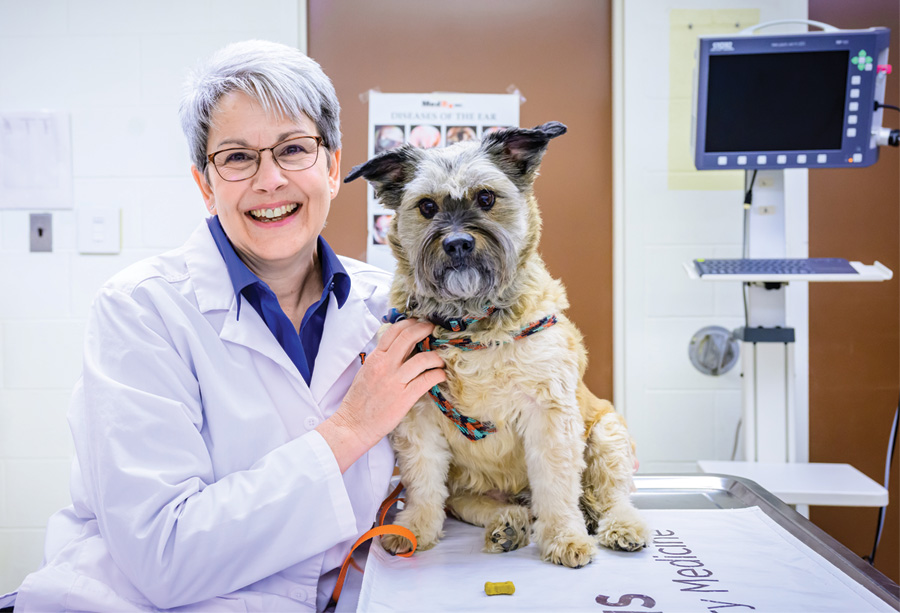I know the past 20 years of graduates, and there are many who are very talented. I plan to contact them about our open faculty positions.
Dr. Anne Barger, a leader in veterinary clinical pathology and a 20-year faculty member at the University of Illinois College of Veterinary Medicine, will become interim head of the Department of Veterinary Clinical Medicine on March 28. A permanent appointment as Professor and Head is anticipated, pending tenure approvals and Board of Trustees approval.
Dr. Barger is widely known as a leader in veterinary clinical pathology. She has served as president of the American College of Veterinary Pathologists and as editorial board member for Veterinary Clinical Pathology. With research interests in cytology, immunohistochemistry, and osteosarcoma, she has published more than 60 peer-reviewed articles and co-edited two textbooks: Small Animal Cytologic Diagnosis and Clinical Pathology for Veterinary Technicians.
She is also a gifted teacher. Students have twice selected her for the Carl Norden-Pfizer Distinguished Teacher Award, and she’s been chosen as the faculty speaker at graduation innumerable times. She has also received the Zoetis Teaching Award and the American Society of Veterinary Clinical Pathology Educator Award.
Dr. Barger is a three-time alumna of the University of Illinois, where she earned bachelor’s, master’s, and veterinary degrees. She completed a clinical pathology residency at North Carolina State University and worked at Antech Diagnostics in Chicago before joining the college faculty in 2002.
She is currently participating in the Leadership Academy of the American Association of Colleges of Veterinary Medicine, a program to develop skills and networking among emerging leaders in veterinary academia.
With around 100 faculty members counting unfilled positions, the Department of Veterinary Clinical Medicine is among the largest on the University of Illinois campus.
“Faculty in this department teach in every year and every semester of the veterinary curriculum,” points out Dr. Barger. “They also pursue scholarship, and most have extensive time commitments to clinical or diagnostic service.”
One aspect of her role as department head will be to recruit clinical specialists to academia during a period of high demand for these professionals. To do this, she hopes to tap into the Illinois veterinary alumni network. “I know the past 20 years of graduates, and there are many who are very talented. I plan to contact them and through them their trainees about our open faculty positions.”
She also plans to focus on wellness for the people who are already in the department, which, she says, will facilitate recruitment because “when candidates visit, they will see that the faculty are happy and fulfilled and that wellness, inclusiveness, and diversity are valued.”



